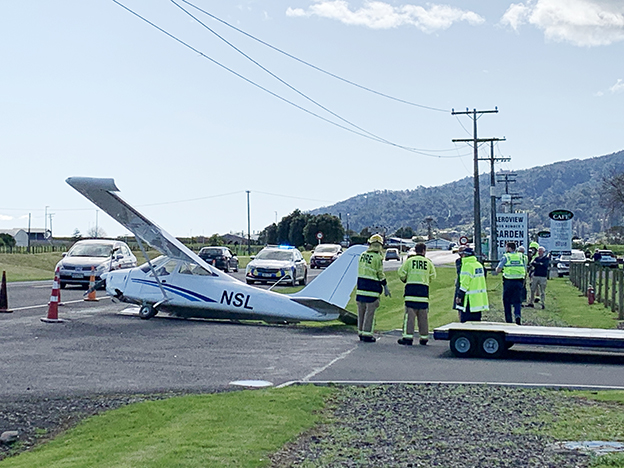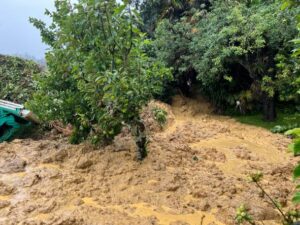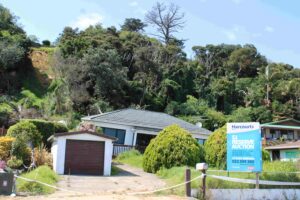Thames Airfield says it expressed concerns about the dangers of nearby power lines for “a number of years”, and hopes the local council will now take action after a plane crashed into them on Sunday.
The plane crashed into power lines on Ngati Maru Highway near the Airfield at 12:45pm. Police told The Profile the pilot was reported to be uninjured after the crash.
The road reopened at 2pm after the plane was removed and the crash is now being investigated by the Civil Aviation Authority (CAA).
Sir Keith Park Memorial Airfield president Geoff Furkert told The Profile that while no planes had crashed into the powerlines prior to Sunday’s crash, there had been incidents with glider tow ropes hitting them.
The airfield had been talking to Thames Coromandel District Council, which owns the airfield, about putting the power lines underground, or marking them with brightly coloured marker walls, he said.
“It might be escalated now but certainly it’s been defined as a hazard for quite some time and it’s just a matter of seeing if we can’t get council and PowerCo to come to the party and get those lines underground,” he said.
“We have had a quote from PowerCo to get it done but it’s really up to the council to activate it seeing they’re the operators of the airfield.”
A resident along Ngati Maru Highway told The Profile he had witnessed the plane “going round and round all day, doing a circuit”.
“It would pretend to come in to land then at the last moment, pull up and gain height, then go round and repeat,” he said.
“Thing is, they were up there for what seems [sic] like a long time and I don’t remember seeing them land to refuel.”
Mr Furket said the pilot, believed to be a member of Hauraki Aero Club for around 15 years, had been flying circuits and flew along the Thames Coast prior to the crash.
“He was landing towards the west and as he turned on to that leg to go into land, he got sun strike and he lost sight of the powerlines and it looks like he hit the powerlines with the wheels,” he said.
“We’re pleased [the crash] wasn’t a lot more severe for the pilot, these accidents can quite often be fatal.”
Mr Furket said Hauraki Aero Club would experience income losses after the crash as the plane was the only aircraft used for public training flights.
He said the club would discuss seeking funding for a replacement plane.




